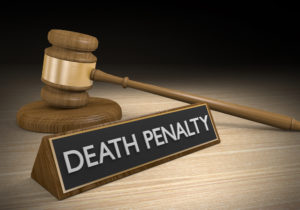 UPDATED:8:51 AM ET, Tue April 2, 2019
UPDATED:8:51 AM ET, Tue April 2, 2019
Controversy has been sparked over a recent execution of a Muslim inmate in Alabama which led to a rare public debate between the Supreme Court justices on how the death penalty should be enforced.
The justices are still divided and have not reached a compromise over the execution of Domineque Ray, a man who claimed that his religious rights were disregarded due to not being allowed to have an imam with him in the execution chamber back in February.
In early February, the conservative-oriented court couldn’t provide much reasoning regarding their decision to allow the execution of Ray to go forward. The Alabama penitentiary allows for a Christian chaplain to be in the room; however, officials blocked the imam, forbidding this request and claiming that prison employees could only be present in the chamber for security concerns.
However, it didn’t stop there. Another death penalty case involved the request for a Buddhist spiritual adviser last week, and the controversy continued since in this case the request was granted. These types of controversies are likely to intensify now that the addition of Justice Brett Kavanaugh has solidified the conservative bent of the court.
“The stakes do not get higher than they do in death penalty cases, and the arguments between the justices and rifts in the court may only get louder and deeper,” said Jessica Levinson, a professor at Loyola Law School.
She claims the court will likely move to the right and become more conservative in the coming years and “these three death penalty cases may demonstrate the court’s growing pains as it moves further away from the ideological center.”


